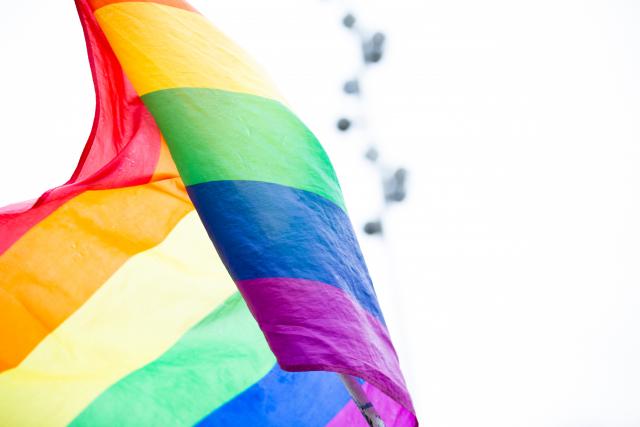
By Callum Ludwig
The potential for a specific LGBTIQA+ Advisory Committee was put to councillors at Tuesday 27 February Yarra Ranges Council meeting.
As reported by the Star Mail in January, the Victorian Pride Lobby’s Rainbow Local Government campaign is calling on councils across the state to establish LGBTIQA+ advisory committees or sub-committees similar to others that are comprised of community members who offer insight on other community concerns.
Co-lead of the Rainbow Local Government Campaign Dr Sean Mulcahy spoke at the meeting and said without an advisory committee, there’s a risk that the specific needs of local LGBTIQA+ people might be lost.
“According to the Victorian Population Health Survey, at least 6600 residents in the Yarra Ranges identify as LGBTIQA+, and an advisory committee is about giving those residents, alongside LGBTIQA+ people who work and recreate in the Yarra Ranges, a voice on issues that affect them,” he said.
“I know that Yarra Ranges Council has participated in the Victorian Pride March and also signed the Embracing Equality Pledge, which is a public commitment to making positive change as allies to LGBTIQA+ communities and our families,”
“I also note the comments from Council’s Director of Corporate Services in the Star Mail that Council is committed to creating an inclusive community, valuing the strength of diversity and addressing and preventing any discriminatory or exclusionary practices and I again want to thank you for this commitment.”
Advisory committees to Council are made up of community members affected by or involved in the topic of interest such as disability, rural areas, health and wellbeing or sustainable environment practices, which are all examples of current advisory committees established in the Yarra Ranges. Occasionally, a councillors will also be included among the committee members or may chair the committee.
Dr Mulcahy said neighbouring councils such as Casey and Manningham have established LGBTIQA+ advisory committees in their municipal districts, and he thinks it’s now time for Yarra Ranges to do the same.
“It’s important that LGBTIQA+ residents and ratepayers in Yarra Ranges have a direct engagement on council policy, major projects and other matters, and an LGBTIQA+ advisory committee that incorporates local community members and community organisations like Rural Rainbows is an important way of providing direct engagement on that work,” he said.
“We ask that the appropriate officer speak with us to understand the terms of the petition and to allow us to understand council’s position on it, we stand ready to work with council and yourselves as councillors to advance LGBTIQA+ inclusion in Yarra Ranges.”
Streeton Ward Councillor Andrew Fullagar spoke to the motion first and asked if Dr Mulcahy was aware there are some LGBTIQA+ representatives on the Health and Wellbeing Advisory Committee to which Dr Mulcahy said he was, but the benefit of a specific committee would be having a particular purpose of LGTBIQA+ inclusion unlike the Health and Wellbeing Advisory Committee.
Lyster Ward Councillor Johanna Skelton spoke next and said she is very enthusiastic about this and does see the benefit.
“I’m very strong on people who are most affected being the best advocates for their needs in the community and we certainly see that from all the advisory committees,” she said.
“I do have the concern that gender and sexuality is still something that in a general advisory committee people may not want to bring, especially if it’s something that is personal to them,”
“I’m just wondering if you have a vision of what you found is an effective advisory committee form for councils.”
Yarra Ranges Council is currently developing the next iteration of its Equity, Access and Inclusion Strategy and is planning direct engagement with community groups such as Rural Rainbows to help advise on it.
Dr Mulcahy said what has been quite successful, particularly the Casey LGBTIQA+ advisory committee, is that it’s very clear that that committee is working with the purpose of helping the council to develop an action plan.
“Often if it’s tied into a particular plan that the council’s developing, and I know the council is at the moment reviewing its Access, Equity and Inclusion policy, then that can be a really constructive way to frame the work of the advisory committee and make people feel as though they’re making a real difference in their contribution,” he said.
Yarra Ranges Council Mayor Sophie Todorov, who has been a member of the Q-East Alliance made up of community workers of seven eastern region areas to improve the health and wellbeing of LGBTIA+ locals, also asked Dr Mulcahy if it might be appropriate to have an advisory committee across an eastern region group of councils such as Yarra Ranges, Knox, Maroondah and Manningham.
Dr Mulcahy said that has been successfully used before.
“If you go a bit south to Frankston and Mornington Peninsula, they have a combined advisory committee, what they call a collaborative, and I think that works quite well because people move across council boundaries firstly,” he said.
“Secondly, I think the learnings that one council has can be shared with other councils as well too, particularly in areas where this might be a first, collaborating across different council areas can be a really effective way of supporting an LGBTIQA+ advisory committee,”
“I would encourage, if this officer’s recommendation is supported today, for the appropriate officer to engage in consultation with neighbouring councils, particularly Casey and Manningham, that have already done some work within this space with a view to the potential of a regional LGBTIQA+ advisory committee.”






